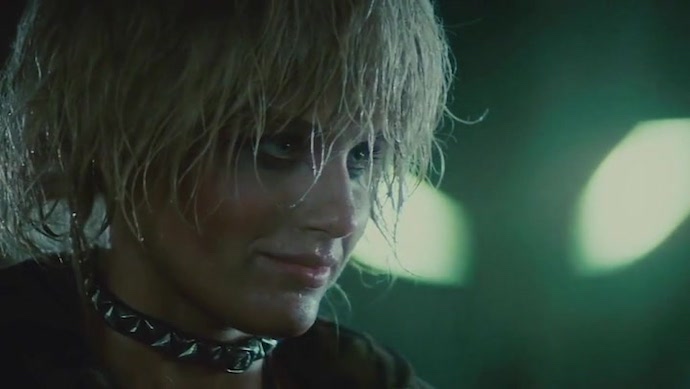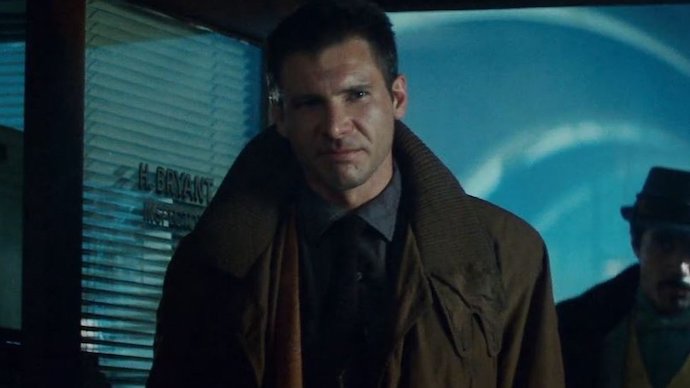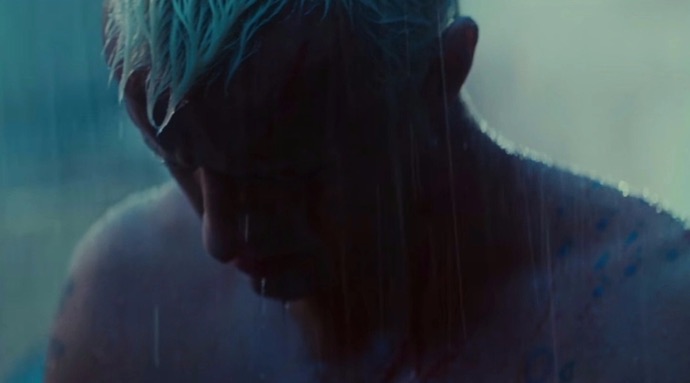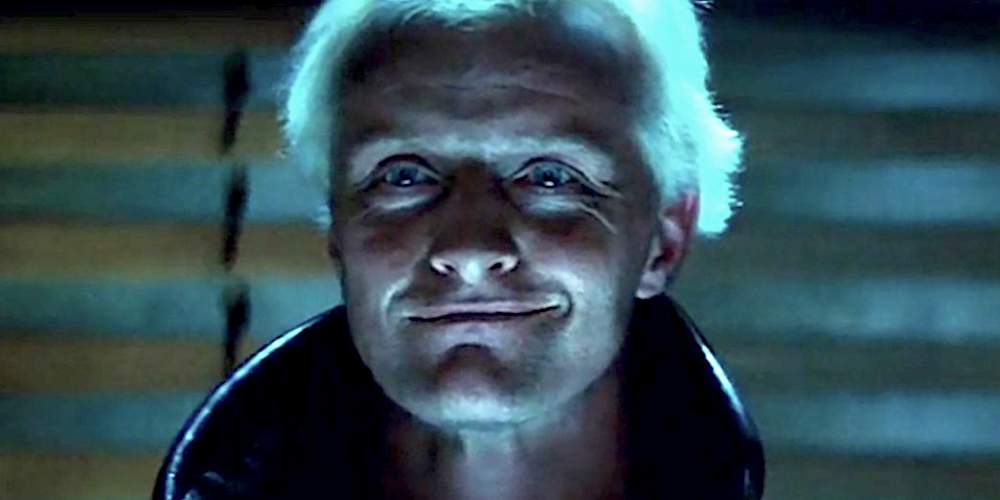"I've seen things you people wouldn't believe..."
Roy Batty to Rick Deckard in Blade Runner
This monologue has become unforgettable in cinema culture.
The dying Nexus-6 was so desperately looking to extend his four-year lifespan that he had resorted to killing anybody who got in his way. In the end, he was told by his creator that his mission was impossible and that death was imminent.
Blade Runner is based on a novel by Philip K. Dick, but saying "based on" is a bit misleading—the original book couldn't be more different from its film counterpart. While Ridley Scott's iconic sci-fi movie is truly excellent, it's a loose adaptation at best.
Titled Do Androids Dream of Electric Sheep?, the novel actually did very well in the literary world upon its publication, and it was even nominated for a Nebula Award (which recognizes the best sci-fi and fantasy works published in the US).
Yet as far as pop culture goes, the 1982 movie adaptation has far outshone the book—so much so that every modern copy of the book now has Blade Runner boldly stamped on it. But popularity doesn't always correlate with quality.
Is Blade Runner better than Do Androids Dream of Electric Sheep? Between Philip K. Dick's original book and Ridley Scott's movie, which is better? Here's how they compare.
Blade Runner Movie vs. Book: Similarities

Despite being a movie adaptation of a book, Blade Runner doesn't share too many similarities with its source material.
In both Blade Runner and Do Androids Dream of Electric Sheep?, Rick Deckard is a bounty hunter who hunts down androids for the Police Department. In the book, Roy Baty (not Batty as in the movie) is the android leader and Rick is infatuated with an android called Rachel.
Aside from a few broader plot details—like Rick hunting down the androids in an abandoned apartment building, the androids being called Nexus-6, etc.—there isn't much more in common.
Thematically, both feature a strong philosophical pondering of what it is to be human. However, in Blade Runner, much of that is defined by the Roy Batty and his belief that androids shouldn't be slaves. The movie format makes it harder to ruminate.
Whereas upon reading Do Androids Dream of Electric Sheep?, there's a sense of wonder about the characters and the story. The book medium gives readers a greater appreciation for Philip K. Dick's novel. It's boldly written with a thought-provoking premise, which keeps you enthralled within its pages.
That said, neither the book nor the movie feel like they share a common purpose. The adaptation took elements from Dick's book and molded them into its own story, which is why the two are so hard to judge when compared against one another.
Blade Runner Movie vs. Book: Differences

Aside from the basic premise and character names, everything that's seen in Blade Runner is the work of Ridley Scott and the screenwriters.
For example, the terms "Blade Runner" and "Replicant" are never used in Do Androids Dream of Electric Sheep?. Both were input by the creative team behind the film, along with the Los Angeles location. In the book, the story takes place in San Francisco after a nuclear war.
The character of J.F. Sebastian in Blade Runner is based on the book character of John R. Isidore, although Sebastian is a genetics expert while Isidore is a mere simpleton. Both take a liking to Pris and both harbor Roy. The similarities end there.
Rick Deckard in Blade Runner is a lonely bounty hunter who's coerced into hunting down Nexus-6 Replicants. In the book, Deckard has a wife named Iran and he's obsessed with buying a real animal as a symbol of status within his community.
Rachel's story throughout Blade Runner and its sequel is massive, even if she has died long before the events of Blade Runner 2049. She and Rick disappear together as they are in love, even though he knows she is a Replicant.
However, in Do Androids Dream of Electric Sheep?, Rachel has an affair with Rick while trying to manipulate him into not pursuing the Nexus-6 androids. The pair don't get together, and she seems to have some similarities with Luv from Blade Runner 2049.
All that aside, one of the most significant differences between the book and the movie is Roy.
In Blade Runner, Roy Batty is the leader of the Nexus-6 group that comes to Earth. He's intelligent, dangerous, and looking for a way to extend his lifespan beyond his four years.
In Do Androids Dream of Electric Sheep?, Roy Baty is the leader of the Androids but lacks the depth that he has in the film. Roy is killed by Deckard, minus the movie-only "Tears in the Rain" monologue.
One other huge difference between the movie and the book is the absence of Mercerism. The film doesn't refer to the quasi-religion that's a big part of Philip K. Dick's original book, in which people use empathy boxes to feel the struggle of Wilbur Mercer, a man who's eternally climbing a hill while being hit with rocks.
Blade Runner Movie vs. Book: Verdict

Because the differences between the two are so vast, both works of art feel like they are their own distinct beasts. While the book offers a more contained experience of Rick Deckard and his life, the movie is more expansive.
Blade Runner sets a tone that's similar to a neo-noir detective story. As Rick hunts down the four Replicants hiding amongst humans, all the while he's falling in love with a Replicant himself.
Do Androids Dream of Electric Sheep? focuses more on themes of social standing and structure, while Blade Runner focuses on the question of what it means to be human.
Roy Batty's desperate search comes to a fruitless end as he realizes that he will soon die. However, as Deckard dangles, poised to fall, Roy catches him and pulls him to safety.
Batty's final actions are profound. Despite Rick having killed all of his friends and Pris, Roy knows that Rick's death is meaningless in the grand scheme of things. And so he saves his life.
Telling Rick of the things he's seen before dying:
"All those moments will be lost in time like... tears. In the rain. Time to die."
Roy Batty's final words to Rick Deckard in Blade Runner
In the end, Blade Runner's final scene encapsulates the movie as a moment of unrivaled human emotion that's experienced through the eyes of a Replicant. While Do Androids Dream of Electric Sheep? has thought-provoking moments, none are on the same level.

